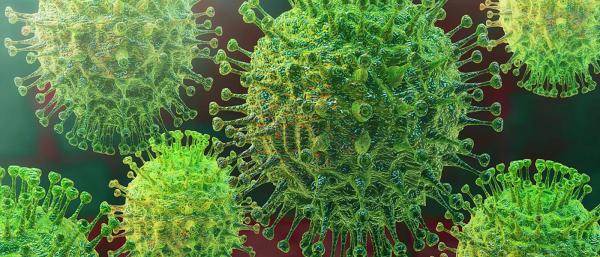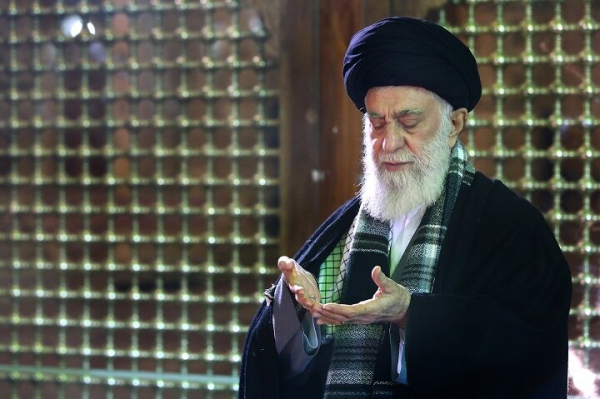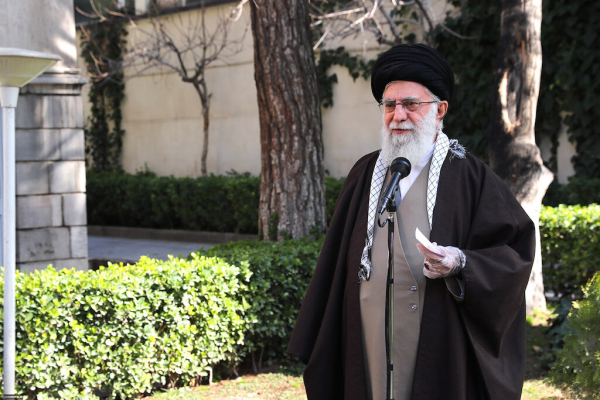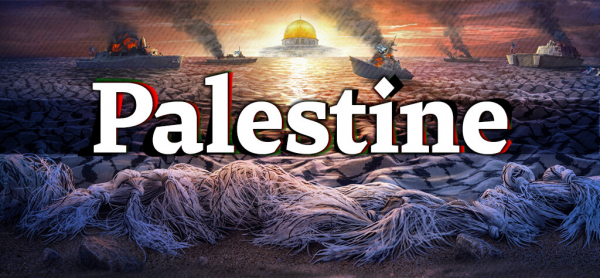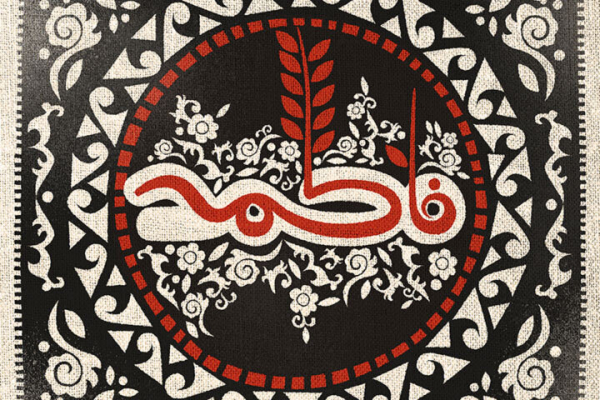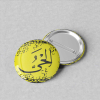hasania
Divine Message
Divine Message
Imams’Guidance
Who has more power and influence, God or Satan?
This fact that Adam ate the forbidden fruit is not an affront to the inerrancy of the prophets Such a contravention by Adam (a.s) is termed as 'Tark-e-Awla' which means neglecting the preferred course of action Moreover, the nahy (prohibition) was Irshadi (advisory) in nature not Mowlavi (legislative) Therefore prophets never disobey where there is a mowlavi command and prohibition.
1-Satan pretended to be benevolet and friendly when he tempted Adam. Therefore, it should not be assumed that the temptations of Satan, though powerful, will deprive man of volition (free will). However, man can stand against it through the power of wisdom and faith. In other words, Satan's temptations do not compel man to commit a wrong . In fact, free will still remains, although resisting the temptations of Satan requires more steadfastness and resistance, and even the toleration of pain and suffering. Anyways, such temptations do not relieve any one of responsibility, as it did not relieve Adam of any responsibility. So we can see that notwithstanding the causes of disobedience created by Satan to encourage Adam to disobey God, God still considers Adam responsible for his act.1
2-According to the Shia, no prophet commits any sins and we know that Adam was one of the divine prophets. Therefore what has been mentioned in the Quran about the prophets and their sins relate to the "relative disobedience" and "the abandoning of more meritorious acts”, and not "absolute sins".
An absolute sin is the same as violating prescriptive prohibitions and the violation of God's absolute order that includes any type of leaving an obligatory duty and Haram (unlawful) acts. However, relative sin is a non Haram act done by a great man who is not deserving to do such an act considering his position and status. Some times, a Mobah or even Mostahab act is not befitting of divine personalities. In this case, doing such an act is considered as a "relative sin". For example if a faithful and rich man gives little help to save a poor person from poverty then undoubtedly this help, even being very negligible, is not Haram rather it is Mostahab. But anyone who hears it may blame the act as if he has committed a sin. Because it is expected that such a faithful and rich man would do something greater than what he has done.
Similarly, acts of divinely inspired individuals will be measured according to their superior position. Sometimes it is comparatively called sin or "Dhanb" (sin).For example, a prayer that may be an excellent prayer for a normal person will be considered as a sin for the Walis of Allah because the Walis of Allah are not expected to have a moment of negligence during worshiping rather they should be immersed in God's glory and beauty during worshiping according to their knowledge, piety and position. It is also true about their other acts besides worship and their acts will be measured according to their position .Therefore if they do an act which is the lesser of two good actions, the will be blamed by God.2
Therefore Adam's prohibition of the "forbidden tree" was not a full out prohibition rather it was an ‘abandoning of the better action’. But this act done by Adam (a) was considered as an important act due to Adam's (a) position and his act (though it was Nahy Kerahati) led to such a severe punishment by God. However it is possible to say that Adam's (a) prohibition of the "forbidden tree" had been" Irshadi" not "Mowlavi".
To further explain, sometimes God prohibits something since He is the owner of the man, has authority over him and is his Lord. So it is necessary for each man to obey God's commands.This kind of prohibition is called "mowlavi prohibition". But sometimes God forbids man from doing something just to say that doing this act will have adverse effects on him. For example just like when a doctor prohibits his patients from eating harmful foodstuffs. Undoubtedly, if a patient acts against the doctor's prescription, then it will not be considered as insult or violation of the doctor's advice. But actually the patient has ignored the doctor's guidance or advice and put himself into trouble. Also in the case of Adam's (a) story, God had told him that eating the forbidden tree's fruit would cause his expulsion from heaven and it would put him in trouble. It is guidance (Irshad) based command not a prescriptive command. Therefore Adam (a) just disobeyed the Irshadi prohibition and there was no real sin.3
3. Moreover, Satan in other verses attributed his sin and oppression to the human and disclaimed any kind of responsibility. Satan considered himself entirely impartial.4 Satan, addressing people on the Day of Judgment, says: God promised you the right and I promised you the wrong. I did not keep my promise but did not force you to do the wrong one. It was you who accepted my invitation by your free will. So do not blame me but blame yourself.5
God in another verse says:" certainly you will not dominate my servants unless they follow you voluntary.6
Conclusion: Through careful attention to what was mentioned, it can be said that undoubtedly God's power is more than Satan's power. Because Satan is God's creature and the creature's power is not more than that of the Creator. So if you observed that Adam (a) used the forbidden tree, it was not because of Satan's verbal influence; rather, it was due to Satan's temptations which were successful. But as mentioned before, it was just an ‘abandoning of the greater act (lapse)’. Also, in the Day of Judgment, humans will be deserving of punishment because of their disobedience by their own free will. Therefore, we should not try to compare the power of influence in the word of God or Satan; rather we should know that God's power is greater than any other power. But it is human beings who do not act according to their own free will.
9 Social Responsibilities in Fighting against Coronavirus
Coronavirus is a tiny little virus whose power is not comparable to its size. Today, many countries around the world are dealing with this newly emerged virus, gradually finding out ways to fight it back. But as the statistics show, this virus is considerably less fatal than its ancestors, including SARS or MERS, with the death rate of 3.8% [1]. The only thing that worries people is its high-speed contingency and how fast it can transmit from one person to the other. In this global crisis, we, as Muslims, should ask ourselves what our responsibility in this situation is. What does Islam want us to do? Shall we sit and watch and let this molecular size thing defeat us and ruin our society? Of course not. As always, Islam advises us to be patient, take actions, and to find the lesson that is embodied in every hardship. As the Quran says, “Indeed ease accompanies hardship” (94:5). The ease that rests at the heart of hardship is only achieved after we realized this lesson, in this case, strengthening the social ties and reaching out to the essence of humanity.
In what follows, we will have a look at some of our most significant social responsibilities in dealing with any crisis, specifically speaking that of Coronavirus.
1.Observe Your Personal Hygiene in Social Interactions
Personal hygiene is one of the cornerstones against catching diseases, and as many experts have so far emphasized, it is the most basic protective measure against Coronavirus. Islam is one of the greatest adherents of personal hygiene and continually advises Muslims to follow specific hygienic manners in their lifestyle. Performing Ablution (Wudhu) before each prayer (Salat) or performing ritual bath (Ghusl) are only two examples of the Islamic rules concerning hygiene. Prophet Muhammad (PBUH&HP) not only observed his own hygiene and tried to appear neat and tidy in the society, but also advised all Muslims to do the same. He said in a narration, “Cleanliness is a part of faithfulness” [2].
Now, how does personal hygiene affect our society and the people around us? Well, when you care about your hygiene, the risk of getting any diseases lowers significantly, and even if you become sick, you won’t transmit it to another person. Therefore, we can say that observing personal hygiene is more than an individual precaution, rather an essential social responsibility, especially at the time of epidemics.

So washing hands regularly, maintaining at least 1 meter (3 feet) distance between yourself and anyone who is coughing or sneezing, using masks if you are sick, avoiding handshakes, etc. are some of the most emphasized precautions against this disease [3].
2. Keep the Streets and Workplaces Clean
Another social responsibility that protects us against any disease is keeping our surroundings clean. Prophet Muhammad (PBUH&HP) said in a hadith, “Allah is pure and loves purity (cleanliness)” [2].
Therefore, avoid throwing out garbage on the streets, especially the used masks and disposable gloves, since they might be the source of Coronavirus and infect other passersby. Also, disinfect your workplace before starting your job with whatever cleaning products you have to protect yourself and others against this virus.
3. Take Care of the Elderly and People with Chronic Diseases
According to recent studies, people over 60 years and the ones who already have a chronic condition such as diabetics, cardiovascular problems, cancer, or respiratory diseases are at the highest risk in suffering from Coronavirus, and it might affect them fatally.
Respecting and helping the elderly are constantly emphasized in the Islamic tradition. Prophet Muhammad (PBUH&HP) said, “Respecting the elderly equals to respecting me” [4]. It is narrated from Imam Sadiq (AS) that, “A person who doesn’t respect the elderly is not one of us” [5] and Imam Sajjad (AS) enumerated many rights for the elderly [i]. Respecting the elderly includes many things, such as speaking respectfully, putting them first, especially in critical situations, and helping them to satisfy their needs.

In these difficult days, this is any righteous human being’s responsibility to help out the ones who cannot protect themselves easily. If we have an elderly parent, we should attend to them more than before. We might have elderly neighbors who cannot go out anymore for fear of getting the disease. We can do the shopping for them, buy whatever they need, or check up on them regularly.
4. Help out the Needy and the Homeless
The other group, which is highly at risk of getting the Coronavirus is the underprivileged and the ones who don’t have a shelter. This is because they are deprived of the means of protecting themselves against this virus.
As the holy Quran puts, one of the ways of attaining piety is through helping others and giving away (3:92). Also, it is narrated by Imam Ali (AS), “The faithful who help the destitute in the hardships and misfortunes of their life are loved most by Allah” [7]. These and many other hadiths and verses of the Quran, urge Muslims to consider the needy and help them in any way they can.
It is our duty to consider the wellbeing of these people, as well. They might not have enough money to buy antiseptics, or any other hygienic products or may not be able to observe their hygiene properly. We can donate them some of this stuff or take them to some safe places that would shield them against this viral disease.
5. Take Care of the Workers
In Islam, workers have many rights that have to be observed by their employers. One of these rights, according to Imam Sajjad (AS), is to support and guard them against harms [8].
Therefore, if you are an employer, it is your responsibility to consider the wellbeing of your workers. This could range from disinfecting the workplace regularly, providing the necessary hygienic products, or even sending them home if possible. But this might end up in a financial crisis for the workers as well. So try to consider a part of or whole salary for your workers for this period of obligatory recess.
6. Do Not Spread Fake News
“Do not pursue that of which you have no knowledge. Indeed hearing, eyesight, and the heart—all of these are accountable.” Quran (17:36)
The message is clear! Do not say or repeat what you are not a hundred percent sure of. From the beginning of the Coronavirus outbreak, we are faced with considerable media bombarding, especially in social networks, many of which are only speculations or pure lies. The result of spreading this false news is the rise of public anxiety and stress levels, making them more prone to the disease.

You should know that Coronavirus is a newly emerged virus, and the data about its source, symptoms, medications, etc. are not complete and authentic yet. It takes much time for the experts in this field to gather reliable information. Therefore, we should only trust authoritative sources such as the World Health Organization website or other official news agencies and medical experts.
7. Avoid Hoarding the Essential Medical or Hygienic Products
The demand for some essential products may rise considerably when facing epidemics, in this case, Coronavirus. For instance, everyone needs masks, detergents, disposable gloves, etc.
In this situation, some profiteers might go for hoarding these essential products to make them more expensive. Or some ordinary people might buy them excessively to store for themselves. Prophet Muhammad (PBUH&HP) condemns the act of hoarding severely and considers the one who practices hoarding an infidel [10]. In another narration, he believes that the hoarder is doomed to poverty and leprosy [11].
The times of hardships are when we should be more careful about our fellow human beings. Therefore, we should be satisfied with our share of these products and let other people have their own share as well.
8. Avoid Unnecessary Visits to Hospitals
Due to its similar symptoms to the common cold, many people would panic when they feel a sore throat, have a runny nose or sneeze, and they rush toward the nearest hospital. And in many cases, their test results are negative.
According to the WHO website, you should, “Stay at home if you begin to feel unwell, even with mild symptoms such as headache and slight runny nose, until you recover. If you develop fever, cough, and difficulty breathing, seek medical advice promptly as this may be due to a respiratory infection or other serious condition” [3].
Lining up in the hospitals keeps the doctors from attending the ones who have more critical conditions. Moreover, it heightens the risk of getting infected. Therefore, we should avoid going to hospitals unless we have the symptoms mentioned above.
9. Stay Positive and Spread Positivity

“Behold! Allah’s help is indeed near” Quran (2:214)
At the end of the day, and after considering all these precautions, we should put our trust in Allah and hope in the good fate He had destined us. When we feel our belief in Allah with all our hearts, we would feel less stressed and more positive. This will not only help us to overcome the anxiety surrounding this disease, but also give us the strength to spread this positive attitude in our society. Remember that you should never lose hope in Allah [ii].
Notes:
[i] “The right of him who is older than you (kabir) is that you show reverence toward him because of his age, and you honor him because he entered Islam before you. You leave off confronting him in a dispute, you do not precede him in a path, you do not go ahead of him, and you do not consider him foolish. If he should act foolishly toward you, you put up with him, and you honor him because of the right of Islam and the respect due to it.” [6]
[ii] “… Do not despair of the mercy of Allah” Quran (39:53)
References:
[1] Report of the WHO-China Joint Mission on Coronavirus Disease 2019 (COVID-19)
https://www.who.int/docs/default-source/coronaviruse/who-china-joint-mission-on-covid-19-final-report.pdf
[2] Mohammad-Baqer Majlesi, Bihar al-Anwar, vol.21, p.257.
[3] https://www.who.int/emergencies/diseases/novel-coronavirus-2019/advice-for-public
[4] Muhammadi Reyshahri, Mizan al-Hikmah (Scale of Wisdom), hadith no.9927.
[5] Muhammadi Reyshahri, Mizan al-Hikmah (Scale of Wisdom), vol.2, p.106, hadith no.10084.
[6] Imam ‘Ali Zayn al-‘Abidin, Treatise On Rights (Risalat al-Huquq), The Right of the one Older than you.
[7] Ibn Shu’bah, Tuhaf al-Uqul, p.376.
[8] Imam ‘Ali Zayn al-‘Abidin, Treatise On Rights (Risalat al-Huquq), the right of the one who works for you.
[9] Nahj al-Fasaha, p.293, hadith no. 690.
[10] Nahj al-Fasaha, p.278.
[11] Ibn Majah, Sunan ibn Majah, vol.2, p.728.
6 Reasons that Lead People to Convert to Islam
Despite the considerable amount of anti-Islamic movements and propaganda in the world, the number of those who convert to Islam and accept it as a way of life is increasing. The question is, therefore, why would people want to become Muslims, while they know that they might go through some difficulties and challenges? In what follows, we will try to mention some of the main reasons that make people accept Islam as the best available lifestyle.
1. Finding the True Face of Islam
In a world that media and politics are standing against a specific religion, many people may blindly accept what the media says. But seeing the amount of budget, human and natural resources that are being spent to conceal a specific religion from the world will give thoughtful people more reason to study and learn about this religion. As soon as they read the Quran in full, not only some chosen parts of it, they will understand the divine spirit of the Quran and its efficacy for human beings.
Muslims are living all around the world, and a Hijabi girl can be “the girl next door” to any non-Muslim. Seeing the routine life of Muslim families proves that what the media says about Islam and Muslims is far from the truth. When the true reality of Islam is uncovered to a person, a religion that leads its followers toward a better and more prosperous life, one surely finds enough reason to convert to Islam and follow its path.

2. The Essence of Islamic laws
Many people who were looking for the most applicable methods in handling social, cultural, or economic issues, found out that the strategies Islam provides for every aspect of human life are so complete that it leaves no room for further questions and ambiguities.
For example, the rulings of Islam regarding business, economy, management, charity, national or international communication, etc. can answer all the needs of anyone who expects growth and perfection.
3.The Practicality of Islamic Ethics for a Convert to Islam
Another essential aspect of Islam that can attract people and lead them to convert to Islam is the ethical orders that Islam provides in the individual, social, environmental, and cultural life of human beings. No one can morally or ethically deny these recommendations and descriptions of the righteous servants of Allah Almighty. Every sane person understands the beauty of a good character defined by Allah (SWT) and realizes how practical is this description for the One who is willing to take it as a model:
“The servants of the All-beneficent are those who walk humbly on the earth, and when the ignorant address them, say, ‘Peace!’ Those who spend the night for their Lord, prostrating and standing [in worship]... Those who are neither wasteful nor tightfisted when spending, but balanced between these [two extremes]. Those who do not invoke another deity besides Allah, and do not kill a soul [whose life] Allah has made inviolable, except with due cause, and do not commit fornication. (Whoever does that shall encounter its retribution … Those who do not give false testimony, and when they come upon frivolity, pass by with dignity.” (25: 63 -72)
4. The Miracles in the Quran
Another significant aspect that motivates many people to convert to Islam is the miracle of the Quran. The Quran, as a book revealed about 1400 years ago, presents many incredible scientific facts. These include facts about human beings, the universe, galaxies, and black holes, animals, psychology, and all the other aspects of knowledge and wisdom, some of which have not yet been discovered, that makes its readers prostrate for the One who revealed this miraculous book. [1]
5. The Dynamism of this Religion
According to many of its rules and regulations, Islam has proven to be a dynamic religion. Although the pillars of Islam are not to be changed, rulings of Islam are designed in a way to help humanity reach perfection by dominating and controlling all the newly invented technologies and sciences.
Islam does not allow a person to become the slave of changes and improvements in the society but provides him/her with guidelines to help the perfection of humanity using both faith and tools.
Clear examples of the dynamic jurisprudence in Islam can be seen in the way Muslims avoid corrupt music, games, movies, etc. While at the same time, they use these tools in the right way to help human growth and perfection.
6. Searching for Peace and Spirituality
In the age of technology, life is so fast, and human beings are busy with making money, surviving, and getting by their life that they hardly find some time for self-development. However, Islam puts the individual experience of human and his/her peace of mind in priority. The relationship that Islam describes between the servant and Allah Almighty is the One that influences all the dimensions of human life.

Allah Almighty teaches man to rely on Him in every single step that we take. He wants His servants to stay by His side as “Whoever takes for his guardians Allah, His Apostle and the faithful [should know that] the confederates of Allah are indeed the victorious.” (5:56)
The fact that staying on Allah Almighty’s side can bring absolute success and victory for the human being is so empowering that will make them not to accept any oppression. Staying by His side and relying on Him can enrich human beings and making them a self-built, confident, humble, and powerful individual.
“… Whoever is wary of Allah, He shall make for him a way out [of the adversities of the world and the Hereafter] and provide for him from whence he does not count upon. And whoever puts his trust in Allah, He will suffice him. Indeed Allah carries through His commands. Certainly, Allah has ordained a measure [and extent] for everything.” (65: 2-3)
In sum, the lifestyle provided by Allah Almighty is multi-dimensional and, therefore, can answer all the needs of human beings. The ways of Allah in ruling the world are very different from those of Imperialist and capitalist powers. That is why people who start to learn about Islam and study various aspects of the Islamic lifestyle become motivated to convert to Islam and choose it as their lifestyle.
A real believer can find ways that are unknown to others only by obeying Allah (SWT); ways that no other “ism” can provide its followers: “As for those who strive in Us, We shall surely guide them in Our ways, and Allah is indeed with the virtuous.” (29: 69)
References:
[1] http://www.miracles-of-quran.com/
Which supplication did Imam Khamenei recommend after the outbreak of Coronavirus?
The seventh supplication in ‘Sahifah Sajjadiyah’بسم الله الرّحمن الرّحیم
In the Name of God, the Beneficent, the Merciful
His Supplication when Faced with a Worrisome Task or when Misfortune Descended and at the Time of Distress
یا مَنْ تُحَلُّ بِهِ عُقَدُ الْمَکارِهِ، وَ یا مَنْ یفْثَأُ بِهِ حَدُّ الشَّدَائِدِ، وَ یا مَنْ یلْتَمَسُ مِنْهُ الْمَخْرَجُ إِلَی رَوْحِ الْفَرَجِ.
O He through whom the knots of detested things are untied! O He through whom the cutting edge of hardships is blunted! O He from whom is begged the outlet to the freshness of relief!
ذَلَّتْ لِقُدْرَتِک الصِّعَابُ، وَ تَسَبَّبَتْ بِلُطْفِک الْأَسْبَابُ، وَ جَرَی بِقُدرَتِک الْقَضَاءُ، وَ مَضَتْ عَلَی إِرَادَتِک الْأَشْیاءُ.
Intractable affairs yield to Thy power, means are made ready by Thy gentleness, the decree goes into effect through Thy power, and all things proceed according to Thy desire.
فَهِی بِمَشِیتِک دُونَ قَوْلِک مُؤْتَمِرَةٌ، وَ بِإِرَادَتِک دُونَ نَهْیک مُنْزَجِرَةٌ.
By Thy desire they follow Thy command without Thy word and by Thy will they obey Thy bans without Thy prohibition.
أَنْتَ الْمَدْعُوُّ لِلْمُهِمَّاتِ، وَ أَنْتَ الْمَفْزَعُ فِی الْمُلِمَّاتِ، لَا ینْدَفِعُ مِنْهَا إِلَّا مَا دَفَعْتَ، وَ لَا ینْکشِفُ مِنْهَا إِلَّا مَا کشَفْتَ
Thou art the supplicated in worries and the place of flight in misfortunes; none of them is repelled unless Thou repellest, none is removed unless Thou removest.
وَ قَدْ نَزَلَ بی یا رَبِّ مَا قَدْ تَکأَّدَنِی ثِقْلُهُ، وَ أَلَمَّ بیمَا قَدْ بَهَظَنِی حَمْلُهُ.
Upon me has come down, My Lord, something whose weight burdens me and upon me has fallen something whose carrying oppresses me.
وَ بِقُدْرَتِک أَوْرَدْتَهُ عَلَی وَ بِسُلْطَانِک وَجَّهْتَهُ إِلَی.
Through Thy power Thou hast brought it down upon me and through Thy authority Thou hast turned it toward me.
فَلَا مُصْدِرَ لِمَا أَوْرَدْتَ، وَ لَا صَارِفَ لِمَا وَجَّهْتَ، وَ لَا فَاتِحَ لِمَا أَغْلَقْتَ، وَ لَا مُغْلِقَ لِمَا فَتَحْتَ، وَ لَا مُیسِّرَ لِمَا عَسَّرْتَ، وَ لَا نَاصِرَ لِمَنْ خَذَلْتَ.
None can send away what Thou hast brought, none can deflect what Thou hast turned, none can open what Thou hast closed, none can close what Thou hast opened, none can make easy what Thou hast made difficult, none can help him whom Thou hast abandoned.
فَصَلِّ عَلَی مُحَمَّدٍ وَ آلِهِ، وَ افْتَحْ لِی یا رَبِّ بَابَ الْفَرَجِ بِطَوْلِک، وَ اکسِرْ عَنِّی سُلْطَانَ الْهَمِّ بِحَوْلِک، وَ أَنِلْنِی حُسْنَ النَّظَرِ فِیمَا شَکوْتُ، وَ أَذِقْنِی حَلَاوَةَ الصُّنْعِ فِیمَا سَأَلْتُ، وَ هَبْ لِی مِنْ لَدُنْک رَحْمَةً وَ فَرَجاً هَنِیئاً، وَ اجْعَلْ لِی مِنْ عِنْدِک مَخْرَجاً وَحِیاً.
So bless Muhammad and his Household, open for me, my Lord, the door of relief through Thy graciousness, break from me the authority of worry by Thy strength, confer the beauty of Thy gaze upon my complaint, let me taste the sweetness of benefaction in what I ask, give me from Thyself mercy and wholesome relief, and appoint for me from Thyself a quick way out!
وَ لَا تَشْغَلْنِی بِالاهْتِمَامِ عَنْ تَعَاهُدِ فُرُوضِک، وَ اسْتِعْمَالِ سُنَّتِک.
Distract me not through worry from observing Thy obligations and acting in accordance with Thy prescriptions.
فَقَدْ ضِقْتُ لِمَا نَزَلَ بییا رَبِّ ذَرْعاً، وَ امْتَلَأْتُ بِحَمْلِ مَا حَدَثَ عَلَی هَمّاً، وَ أَنْتَ الْقَادِرُ عَلَی کشْفِ مَا مُنِیتُ بِهِ، وَ دَفْعِ مَا وَقَعْتُ فِیهِ، فَافْعَلْ بیذَلِک وَ إِنْ لَمْ أَسْتَوْجِبْهُ مِنْک، یا ذَا الْعَرْشِ الْعَظِیمِ.
My capacity has been straitened, my Lord, by what has come down on me, and I am filled with worry by carrying what has happened to me, while Thou hast power to remove what has afflicted me and to repel that into which I have fallen. So do that for me though I merit it not from Thee, O Possessor of the Mighty Throne!
Imam Khamenei's advice to the people on Coronavirus
On the occasion of the National Week of Natural Resources, Ayatollah Khamenei, the Leader of the Revolution planted two tree saplings today (Tuseday) morning, March 3, 2020.
The following are statements made after planting two fruit tree saplings on the occasion of Tree Planting Day.
This includes important advice from the Leader of the Islamic Revolution to the people about the current epidemic.
After planting two saplings, Imam Khamenei made a speech in which he called tree planting an activity with blessings. He also referred to the disease which has entered the country and said, “I previously expressed my heartfelt gratitude to the doctors, nurses and medical staff. I feel it is my duty to again thank these dear ones who are fighting for the cause of Allah with their very valuable work.”
The Leader of the Islamic Revolution believes the examples of dedication and sacrifice of the medical staff in treating patients show their responsibility and commitment, and he added, “I would also like to thank the families of doctors, nurses and all the medical staff who support the round the clock endeavors of their loved ones with their patience and tolerance.”
After praying for the recovery of the sick, asking for God’s divine mercy and forgiveness for those who have passed away from this illness, and praying for their families’ patience, he made several recommendations to people.
After emphasizing the need to observe the recommendations and instructions of the officials for prevention, Imam Khamenei added, “Their instructions should not be violated, because God has obliged us to take responsibility for our own health and that of others. So, whatever contributes to the society’s health and prevents the spread of this disease is good, and whatever contributes to spreading the disease is bad.”
The Leader of the Islamic Revolution also made another recommendation in calling upon everyone to rely upon and trust in the Lord, and he stated, “Of course, this tragedy is not too big; we have been through bigger tragedies. However, I highly believe in the effectiveness of the prayers, which come from the pure and immaculate hearts of the youth and pious people, in being able to repel major tragedies. Because, supplicating God and asking for the intercession of Prophet Muhammad (pbuh) and the Holy Imams (pbut) can solve many problems.”
He also added, “The seventh prayer in ‘Sahifah Sajjadiyah’ is a very good and meaningful prayer, which one can use to speak to the Lord with these beautiful words and while paying attention to its meaning.”
Imam Khamenei also urged all sectors in the country to cooperate and provide the necessary facilities to the Ministry of Health, which is at the forefront of the fight against the disease, and stated, "The armed forces and entities connected with the Office of the Leader are also obliged to do the same.”
The Leader of the Islamic Revolution referred to the fact that many countries in the world have been afflicted with this disease, and he went on to say, “Our officials have been informing the public since the first day with honesty and transparency, but some other countries where the disease is more widespread are hiding the news. Of course, we also ask Allah to bestow health on those people who are sick too.”
His Eminence considered the incident to be transient rather than severe and said, “Of course, I do not want to say this problem is unimportant, but we should not make it too big either. This incident will afflict the country for a temporary period of time, and then it will be gone. Meanwhile, the experiences gained from it and the actions of people and government sectors, which are like a public exercise, can remain as an achievement.”
Imam Khamenei made reference to the kind and charitable actions of some compatriots, such as financial donations and the distribution of health care products, and added, “These are very good actions, and if we protect these achievements, tragedies will turn into blessings and threats will turn into opportunities. We hope that the dear Iranian nation will soon have complete health and prosperity."
Terrorists of Baghdad Airport
Ayatollah Khamenei:
I should add that another measure that they adopted in order to overshadow those great events was what these three vicious European governments did: the vicious English government and the French and German governments. They threatened Iran that they would take the nuclear matter to the United Nations Security Council again. Of course, the officials of the country responded in a firm manner. They received a firm response.
These are the three countries which helped Saddam as much as they could in the war that was imposed on us. The German government provided Saddam with chemical weapons so that he would target our cities and our frontlines. The effects of those chemical weapons still exist among our veterans. The French government gave him “Super Etandard” helicopters in order to target our oil tankers. This is their record. As for the English government, it served the goals of our enemies with all its power. It served the interests of Saddam as well. They are like this. This is their history and they are acting in the same way today. We should adopt such an outlook towards them.
I used to say this from the beginning. After the US left the Bar-Jaam [JCPOA], those three governments would rant and rave all the time. On that day, I said that I did not trust them and that they would not do anything because they serve American interests. Today, this has become completely clear. After the passage of one year, it has become clear that they are America’s footboys in the true sense of the word. They are America’s footboys. That is while those little governments hope that they can bring the Iranian nation to its knees. The US who was greater than you and began these measures before you and who is your master failed to bring the Iranian nation to its knees. You are too small to bring the Iranian nation to its knees! [Audience chants, “Allahu Akbar”].
Even when they want to negotiate, their negotiations are mixed with deception and trickery. Those who appear at the negotiating table, those “gentlemen” who sit at the negotiating table are the same terrorists of the Baghdad airport! They are the same people and they are no different. They only appear in disguise. It is the iron fiststhat takes off its velvet coverand glove and reveals its true self. Otherwise, their nature is the same and it is no different. They cannot be people whom we can trust.
The solution to the issue of Palestine in the Words of Iranian Supreme Leader
-
The issue of Palestine is the World of Islam’s top priority
Nov 23, 2017Today, the issue of Palestine is the first issue of the world of Islam. Anyone who has a correct understanding of the issue of Palestine acknowledges that the issue of Palestine is the first issue of the world of Islam. The key to defeating the enemies of Islam is the issue of Palestine. The most important issue of the world of Islam in the present time is the issue of Palestine. Why is that? This is because Palestine is an Islamic country. They have come and occupied this country. They have taken it away from its people. The issue is not about usurping a village or city. The enemy has usurped a country and it has used it as a base for jeopardizing the security of regional countries. One should fight against a cancerous tumor. Notice that if a person issues a fatwa as a religious mufti saying that fighting against Zionism is haram, that helping such and such a group which is fighting against Zionism is not allowed, this is really a disaster to witness that some people in the world of Islam are acting against the interests of Islam and have friendly relations with the enemies. This is the exact opposite of the Quran's clear words: "Those who are with him are strong against unbelievers, but compassionate among each other" [The Holy Quran, 48: 29]. However, those people are strong against Muslims, but compassionate among unbelievers. They are on good terms with them, but notice what they are doing to Muslims.
Lady Fatima's (PBUH) high status in the words of Aisha, the wife of the Prophet (PBUH)
The following is an excerpt of the analysis of a hadith conducted at the beginning of Dars-e Kharij on December 30, 2019, by Ayatollah Khamenei, the Supreme Leader of the Islamic Revolution, about the relationship between Hazrat Fatimah Zahra and the Holy Prophet (greetings be upon them).
In the Name of Allah, the Beneficent, the Merciful
All praise is due to Allah, the Lord of the Worlds, and peace and greetings be upon our Master Muhammad, and upon his pure household, and may God curse all their enemies
Aisha bint Talha narrates from Aisha bint Abu Bakr, “I did not find anyone among people who resembled the Holy Prophet (greetings be upon him and his household), in word and speech, more than Fatimah. Whenever she paid a visit to the Holy Prophet, Hazrat would welcome her, would kiss her hand, and would seat her in his own place and whenever the Holy Prophet paid a visit to her, she would rise, would welcome him and would kiss his hand.
When the Holy Prophet became sick, Fatimah paid a visit to him and Hazrat whispered something in her ear and then, she began to weep. The Holy Prophet whispered something else in her ear and she laughed. I said to myself, ‘I thought that this woman was superior to others, but I see now that she is just like others because she laughs after having wept.’ Then, I asked her about this, but she replied that it is not the time to answer that question.
When the Holy Prophet passed away, I put that question again to her and she said, ‘He said to me that he would pass away. That was why I cried. Then he said that I would be the first among his family members who would join him and that was why I laughed.’” [Amali al-Tousi, Chapter 14, page 400]
Aisha bint Talha narrates from Aisha bint Abu Bakr, “I did not find anyone among people who resembled the Holy Prophet (greetings be upon him and his household), in word and speech, more than Fatimah.”
The daughter of Talhah, named Aisha, was a well-known woman among the Quraysh tribe and it is narrated that she was the honorable wife of the Holy Prophet who narrates from Aisha bint Abu Bakr:
“I did not find anyone among people who resembled the Holy Prophet (greetings be upon him and his household), in word and speech, more than Fatimah.” These days coincide with the martyrdom of that great personality. This narration is about their resemblance in terms of the way he spoke, but I have seen another narration – again by Aisha – in which she says that Fatimah resembled the Holy Prophet more than anyone else in terms of their looks and the way he walked.
“Whenever she paid a visit to the Holy Prophet, Hazrat would welcome her.”
After that she says that whenever Hazrat Fatimah (God’s greetings be upon her) paid a visit to his house, the Holy Prophet would welcome her.
“Would kiss her hand.”
The Holy Prophet would then kiss her hand.
“And would seat her in his own place.”
He would seat her in his own place. The Holy Prophet respected his daughter – the greatest lady in the entire human history – that much.
“And whenever the Holy Prophet paid a visit to her, she would rise, would welcome him and would kiss his hand.”
And whenever the Holy Prophet would go to her house, she would rise, would welcome him and would kiss his hand.
“When the Holy Prophet became sick, Fatimah paid a visit to him.”
During the time when the Holy Prophet became sick – his last illness – Fatimah went to visit him in his house.
“And Hazrat whispered something in her ear and then, she began to weep.”
They began to whisper and Fatimah (God’s greetings be upon her) began to weep.
“The Holy Prophet whispered something else in her ear and she laughed.”
They whispered again, but this time, Fatimah (God’s greetings be upon her) laughed.
“I said to myself, ‘I thought that this woman was superior to others, but I see now that she is just like others because she laughs after having wept.’”
Aisha says to herself, what is that? I used to think that that lady was superior to other women. It becomes clear that she is a woman just like others as she weeps once and laughs another time.
“Then, I asked her about this, but she replied that it was not time to answer that question.”
She approached Fatimah and asked her about the incident, but Hazrat said that she could not answer because then she would be a revealer – as people say today, she would be a “big mouth”. So, Hazrat Zahra did not tell her what the reason was.
“When the Holy Prophet passed away, I put that question again to her.”
After the demise of the Holy Prophet, she asked that question again. At that time, there was no problem to talk because the Holy Prophet had passed away and it was alright to talk about it.
“She said, ‘He said to me that he would pass away. That was why I cried.’”
Fatimah said, “The Holy Prophet said to me that he would pass away and that made me cry.”
“Then he said that I would be the first among his family members who would join him and that was why I laughed.”
After that, he told her that she would be the first among his household who would join him: That made me happy and therefore, I laughed.
The blessings from the Prophet’s school
One of the most prominent examples of “Kawthar” is the sacred soul of Lady Fatimah (pbuh), in whom Allah the Exalted has placed spiritual and physical succession to Prophet Muhammad (pbuh). Contrary to the assumption of the reproaching enemies, this young woman with her bountiful blessings and deep spirit, was successful in preserving the name, memory, school and teachings of the Prophet (pbuh) more than any illustrious, great child has ever been seen to do.
Imam Khamenei, October 1, 1999


